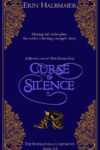On Culture And Giving Offense Or Being Offensive
To be honest, I wanted to write a piggy-back post to the one Travis Perry wrote last Thursday because I think his evaluation of Christians and the way we interact with our culture is both fascinating and thought-provoking. But ultimately, I agree with his conclusions and don’t know if I have anything significant to add. So I thought I’d bring back an article from a couple years ago (with appropriate editorial revisions) that also addresses Christian influence on culture.
In today’s culture being offensive seems to be cause for intolerance.
A number of years ago I read a portion of an address the former provost of Stanford University delivered to the board of trustees of that school. In it, he decried the trend toward intolerance in an academic environment. I found the article because one of my Facebook friends posted a response published in Slate.
If you are unfamiliar with Slate, here’s the Wikepedia description:
Slate is an online liberal / progressive magazine that covers current affairs, politics and culture in the United States. . . It has a generally liberal editorial stance.
Given that piece of information, it’s clear what angle the article took in responding to the charge that academic institutions, Stanford University specifically, have become too intolerant. The Slate article, in fact, is titled “In Praise Of Intolerance.”
Yes, you read that correctly: intolerance. The goal, according to Alan Levinovitz, the author of the article, is truth. To make the point, he references hatred and the Holocaust, then says this:
Likewise, biologists reject creationism not because it is intolerant of evolution, but because it is wrong. The same is true when immunologists reject vaccine skepticism. White supremacists, creationists, and vaccine skeptics refer to their exclusion from higher education and mainstream media as a form of intolerance. And they’re right—academic institutions are intolerant of their views. Yet we can all agree that Stanford needn’t change its hiring practices. Those who strive to stamp out these dangerous views are intolerant, but justly so. (from “In Praise Of Intolerance”—Emphasis mine).
So, creationism, according to Mr. Levinovitz, is an intolerant view. An offense, you might say. Because the charge in these institutions of higher education is along these lines: students are offended when a Christian organization like Interversity, requires those in student leadership to be Christians. Because, you see, requiring Christian organizations to be run by Christians is apparently discriminatory.
Christian student groups have been allowed back onto University of California campuses, but new legislation in the state government came up some time later affecting private colleges and universities in the area of transgender issues. The bill was withdrawn, but the point is clear: as a culture, we are, in the name of tolerance, moving more and more toward intolerance.
Ironically, the U. S. Constitution, the document considered to be the Law of the land, contains an amendment insuring that those of us who hold opinions others find intolerant or offensive, still have a right to speak.
But Mr. Levinovitz would seem to take the view that those holding “wrong ideas” ought not be allowed to publish them or to voice them in a public place like a university campus.
The longtime best-selling book of Christian apologetics—C.S. Lewis’ Mere Christianity—calls for religious nationalism (“all economists and statesmen should be Christians”) and argues that God wants men to be the head of the household. These are popular ideals, but they are poisonous and deserve fierce resistance, not complacent tolerance. (Ibid.)
 So apparently, the ideas C. S. Lewis supposedly espoused (because much of what the author claims, was taken out of context) ought not be tolerated. The implication is that Lewis and his books ought not be tolerated.
So apparently, the ideas C. S. Lewis supposedly espoused (because much of what the author claims, was taken out of context) ought not be tolerated. The implication is that Lewis and his books ought not be tolerated.
Was Lewis giving offense? Or are those who disagree with him simply offended because they find his conclusions in contradiction to their own?
The question is, how soon will Lewis be ousted from university bookstores? Will students be able to find copies of the Narnia books or his space trilogy in their libraries? Or in any library, if Mr. Levinovitz’s ideas about intolerance become widely accepted?
And what about the books of today. Should writers strap on the veneer of the tolerant in order to have a chance to be published in the general market? Just recently I heard about a wonderful manuscript that speaks to some of our western society’s raw wounds regarding racism. Can that story break through the barriers of traditional publishing? Unlikely, given the sensitivity with which publishers approach such books.
Christian publishers have their sensitivities, too. They want clean fiction, stories that are not negative toward Christianity, that have an element of faith. These publishers would perhaps be seen as intolerant of stories that contain scenes of promiscuity and language laced with profanity.
Ought general market publishers have tolerance toward, say, transgender issues, but not toward pro-life issues? I suppose those that own those publishing companies can choose which ideas to support and which to label as an offense.
The real question is this: are Christians ready to be marginalized further? Are we preparing to share the gospel regardless of how offensive the culture finds it or how offended people claim to be?
 I’ve long said that Christians are not to be offensive in the way we speak, but the Bible itself says the message of the gospel is offensive to those who are perishing. To tell people they are sinners, is offensive. To say that some are saved and some are not, is to appear in the eyes of our culture to be discriminatory. To be hateful. To hold a position that ought not to be tolerated.
I’ve long said that Christians are not to be offensive in the way we speak, but the Bible itself says the message of the gospel is offensive to those who are perishing. To tell people they are sinners, is offensive. To say that some are saved and some are not, is to appear in the eyes of our culture to be discriminatory. To be hateful. To hold a position that ought not to be tolerated.
The point is, the more Christians withdraw from the culture, the more we fail to engage the offensive questions publicly, the less likely we will be to do so at all in another twenty years.
Are we to outshout those who say the kinds of things Mr. Levinovitz said—that creationism is wrong and not to be tolerated? That’s not the most effective approach, I don’t think, and it’s not the one the Bible endorses.
We are to make disciples, Jesus said before He left earth. We are to go into all the world and preach the gospel. But we are also to live as salt and light.
So I wonder, are Christian novels today shining light? Yes, I realize we, the actual, physical people who follow Christ, are to be salt and light. But how do we show our light if not by what we do and say and think and write? How do we influence and affect the culture around us, giving flavor and providing the preservative power of the gospel, if not by our stories?
The question, in the end, is this: are we an offense to those around us or are they responding to the truth of God’s word (either positively or negatively), lived out in what we Christians do and say and write?
Post Script: I’m adding this video that I just say (a little over 5 minutes long) which also addresses these same issues:









































Morality, in terms of psychology and the way our brains process it, has to do with a person’s emotions and what they feel is a good or bad thing. That’s why right and wrong has such an emotional component and causes people to get so adversarial. It’s a similar thing with Ethics, except that has to do more with other people’s feelings, what’s good for a group, and what other people/groups feel is a good or bad thing. (I do believe that there is an intrinsic right and wrong, but it’s more complicated than we think, and we can’t always know what it is. Our psychological sense of Morals and Ethics are often just our way of trying to figure out what the Intrinsic Right/Wrong actually is).
Studying the particular strain of Jungian Depth Psychology and personality types I’ve been looking into lately, I’ve come to understand how truly important it is for there to be so many varying opinions and personality types. Yes, those differences can lead to conflict, but that conflict actually keeps society from stagnating inside harmful circumstances. We would have a much harder time surviving or progressing if we weren’t challenging each other regularly.
I might get annoyed by personality types that have a ‘test the rules’ mentality, for example. I’m far from a ‘follow the rules at all costs’ person, but test the rules types tend to need to learn through experience, and are less likely to value a rule unless they break it and experience the consequences for themselves. That drives someone like me crazy, because instead of testing a rule by breaking it(and potentially messing something up) I instead ‘test’ the rule by evaluating it in my own head. Basically, running a mental simulation of what could happen if a rule is broken, and from my perspective everyone should learn how to do that. To an extent it’d be good if people did, but ‘test the rules’ personality types can still be beneficial for me and even society as a whole. Their behavior poses a challenge that needs to be addressed, and thus can force people to evaluate/fix errors in their beliefs, processes, or rule systems.
The same thing goes with the constant conflict resulting from everyone’s differing beliefs. Let’s look at the topic of feminism. When I was a kid, a lot of people were fighting for feminism by writing ‘strong female characters’. A lot of those chars were warriors that just ‘weren’t like other girls’, and in many cases almost acted like anything traditionally feminine was immediately bad, and like women could only be worthy if they completely rejected feminine things and proved themselves through ‘mens’ work’.
During the time when that was popular and considered right, a lot of people might have been called sexist for challenging that character type. But now, even liberals seem to be pointing out that the ‘strong female’ trope can actually be sexist too. Mainly, because it acts like being feminine is a bad thing, and like a woman has to prove herself to men to be worth anything.
Imagine some committee taking a stance on a social issue like feminism, deciding that a certain brand of ‘warrior woman’ char was the only acceptable way to address this in literature, and then banned anyone that opposed their idea. What gives this committee all knowing authority on what’s right vs wrong, and what works/what doesn’t? If they aren’t willing to have their ideas challenged in the first place, how can anyone trust them to come to the right conclusions? We can’t, if they aren’t willing to realize that they could be wrong at any given time.
In that instance, the committee would be right in that there’s lots of sexism and violence toward women that needs to be stopped. But just because a group feels that that issue has to be addressed with THEIR method doesn’t mean they’re correct. Generally, challenges to everyone’s beliefs need to be allowed, that way any holes in their beliefs/methods can be handled.
It’s the same thing with any group or belief system. They might have a goal, complaint, etc. that’s valid, but that doesn’t mean they’re above reproach. But it is worth considering how the reproach happens. Internet pileons started by Twitter mobs are probably not the best in many cases, for example. Not trying to say they should be illegal, but people should probably think twice before jumping into one.
Bleh. My last post was kind of a mess. Hopefully it did an ok job as far as explaining some of the reasons why we need diversity of thought and free speech.
As far as being a light and all that, we certainly should be. But to increase effectiveness, we should constantly be reevaluating ourselves, and analyzing why people get mad and what we can do about it. Sometimes people hate Christianity, creationism, etc. simply because they don’t understand it. Like, some people are still under the impression that all Christians and creationists are completely anti science. Or they think only about Young Earth Creationsim without realizing that there’s other types of Creationism out there, too.
When we write, we should actually understand the other side and know what we’re talking about, too. Otherwise, there’s no reason for anyone to pay attention to us, because if we don’t even understand the side we’re criticizing, why should they spare the time to listen?
All that applies to everyone, not just Christians, though. If a liberal atheist is going based off stereotypes and clearly not understanding those he criticizes, why should anyone listen to him?
That isn’t just about ‘being nice’. It’s about showing competence and proving that we have valid reasons for things that are worth adhering to.
I think you explained some of the reasons we need diversity of thought quite well, Autumn. I would disagree on one point: “I do believe that there is an intrinsic right and wrong, . . . and we can’t always know what it is.” I think God has made right and wrong quite clear in Scripture. For instance, Romans 1 gives a list of things: filled with all unrighteousness, wickedness, greed, evil, full of envy, murder, strife, deceit, malice . . . and the list goes on! So I’d say, we know those things are wrong. But what we need to understand is what those things mean.
So, for example, a pro-life person might say, See, murder is wrong, so abortion is wrong. A socialist might say, See, capitalism is wrong because it lives on greed, and clearly greed is wrong.
We could go through the list in that way, discussion what each means in the practical, living out of God’s word. But that doesn’t mean God hasn’t told us what’s right and wrong. In fact earlier in the passage it says God’s wrath is against those who “suppress the truth in unrighteousness.”
In that one statement, there’s lots more to discuss and there will be lots more opinions. So discussion of truth is important and actually helps us all understand truth and error.
The fact is, our culture today thinks truth is this floating, elastic thing which allows people to arrive at opposite positions and still both have “truth.”
The fascinating thing to me is, a lot of the same people who believe this about truth also believe that what offends them should not be allowed. In other words, the guiding principle is what I think is right, or more accurately, what I feel is right. Truth actually has become devalued and has little meaning in this culture.
Thanks for adding your thoughts, Autumn.
Becky
Well, the list you brought up is very vague. Like you said, it’s hard to know what those things mean, and that’s specifically why I said we can’t know. God doesn’t babysit us, which is good in many ways, but that means that no, we don’t always know what to do, especially in very specific circumstances that could easily be argued either way.
But it’s kind of also why I think diversity of thought is important, too. Now days, for instance, people want to jump into thinking that capitalism is always intrinsically founded on greed and that socialism is immediately free from greed and the way to utopia. Neither of those are true. Greed can easily occupy either system. I prefer capitalism because it allows for more freedom, personal boundaries and innovation. BUT, people need to make sure they are going about capitalism the right way, such as finding ways to benefit others while they build their companies. That is entirely possible, and we can only see that when we allow diversity of thought.